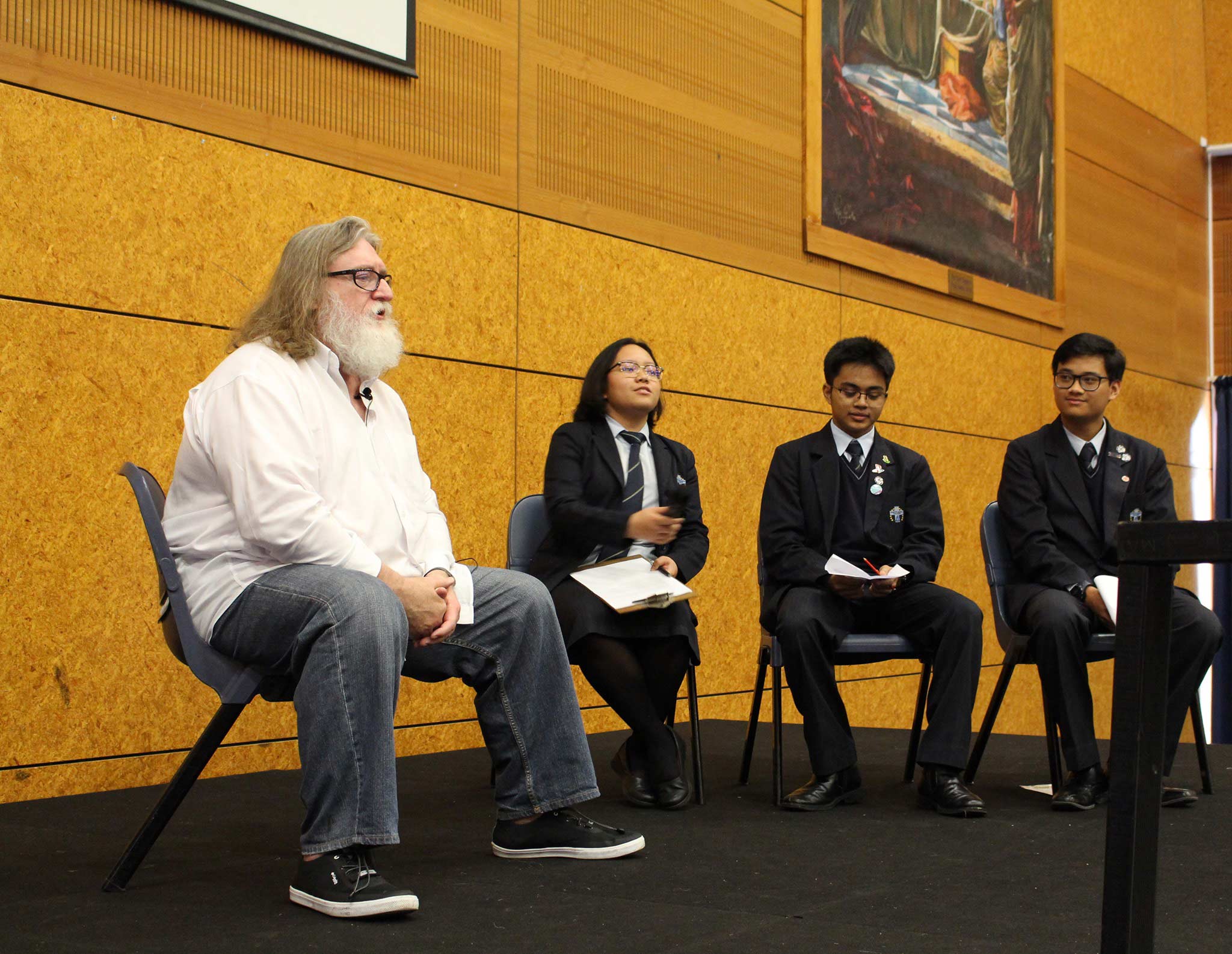In a talk at an Auckland, New Zealand area high school back in May, Valve co-founder Gabe Newell revealed they’re making “big investments in new headsets and games,” something he hopes will prepare the company for a future of brain-computer interfaces (BCI).
Newell has been living in New Zealand for the past few months, which has been comparatively unaffected by COVID-19 due to strict measures in that country. In a public talk at Auckland’s Sancta Maria College, a local Catholic high school, Newell spoke a bit about his vision for the future of gaming and the technologies the company was investing in to make that happen.
The event was captured on video by Reddit user ‘Odysseic’ (web archive), however a recent tweet by VR designer and tech analyst Brad Lynch revealed a smaller soundbite taken from a different angle that pointed out what went largely unreported.
Valve, which created the high-end PC VR headset Valve Index and award-winning PC VR title Half-Life: Alyx (2020), is still investing “big” in new headsets and games.


On stage, Newell took several questions from students, some of which landed on Valve’s involvement in immersive technologies such as AR, VR, and BCI. To Newell, AR and VR aren’t end goals as such, but rather steps along the way to a future of widespread BCI, something he’s likened many times in the past to The Matrix in terms of how immersive and interactive the technology will be.
“There are interesting questions, like: are things sort of stable end goals or are they transition points? My view, which is not in the accepted middle realm, is that VR and AR are transition points towards brain-computer interfaces. Everything you have to do in terms of controls in games, in terms of understanding visual processing, in terms of competent design are leading you towards brain-computer interfaces and what they do.”
Continuing:
“I think brain-computer interfaces are going to be incredibly disruptive, one of the more disruptive technology transitions we’re going to go through. So I think it’s super valuable. We’re making big investments in new headsets and games for those application categories, but also looking further down the road and saying, ‘what’s that evolve into?'”
Answering a question on whether he was happy with the current direction immersive technologies are taking, Newell maintained that although Half-Life: Alyx demonstrates what the company thinks VR is capable of right now, more is yet to come.
“Half-Life: Alyx was sort of our best statement on what we think the opportunities are, and I think that encapsulates our current best thinking on that. And it also informs the decisions we’re making on the next generation of headsets we’re developing.”
It isn’t clear what type of headsets and games the company is investing “big” in; Newell didn’t specify where on the spectrum those fit in terms of AR or VR. Newell previously called BCI as an “extinction-level event” for every entertainment form that’s not actively looking at the technology. We can bet whatever the company has in store, it will be leaning into BCI in the same way it did when it partnered with HTC to build the first HTC Vive in 2015, the first consumer VR headset to ship with motion controllers.
Although we’re no closer to learning what Valve is working on behind closed doors, at least one of those headsets (note the plural) Newell might be referring to in the talk may be Valve’s work on Galea, a BCI project created in partnership with OpenBCI and eye-tracking firm Tobii. Earlier this year it was said that developer kits incorporating Tobii’s eye-tracking, design elements of Valve Index, and electroencephalography (EEG) based sensors would arrive sometime in early 2022.
Valve hasn’t issued an update on Galea since February 2021, and hasn’t revealed any other AR or VR projects in the meantime, although it’s good to know one of the biggest driving forces behind consumer VR is still continuing to invest in immersive games—irrespective of what immersive platform they may target. We’re really hoping to see what sort of games Valve has in mind too.

